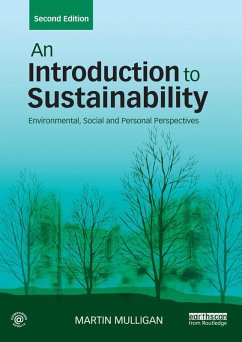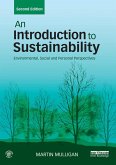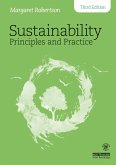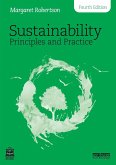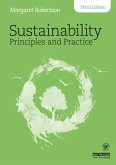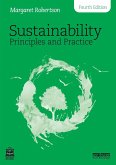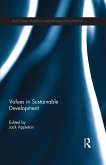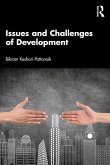The fully updated second edition, including new figures and images, teases out the diverse but intersecting domains of sustainability and emphasises strategies for action. Aimed at those studying the subject for the first time, it is unique in giving students from different disciplinary backgrounds a coherent framework and set of core principles for applying broad sustainability principles within their own personal and professional lives. These include: working to improve equality within and across generations; moving from consumerism to quality of life goals; and respecting diversity in both nature and culture.
Areas of emerging importance such as the economics of prosperity and wellbeing stand alongside core topics including:
· Energy and society
· Consumption and consumerism
· Risk and resilience
· Waste, water and land.
Key challenges and applications are explored through international case studies, and each chapter includes a thematic essay drawing on diverse literature to provide an integrated introduction to fundamental issues.
Housed on the Routledge Sustainability Hub, the book's companion website contains a range of features to engage students with the interdisciplinary nature of sustainability. Together these resources provide a wealth of material for learning, teaching and researching the topic of sustainability.
This textbook is an essential companion to any sustainability course.
Dieser Download kann aus rechtlichen Gründen nur mit Rechnungsadresse in A, B, BG, CY, CZ, D, DK, EW, E, FIN, F, GR, HR, H, IRL, I, LT, L, LR, M, NL, PL, P, R, S, SLO, SK ausgeliefert werden.
"This is a clear, well-pitched introduction to sustainability issues for undergraduate students. The book combines analysis of contemporary environmental concerns and their interwoven social dynamics with a real sense of the personal dimension of sustainability. Built on a decade's worth of teaching experience, this book encourages a wide-ranging and accessible approach to the subject for students from a diversity of academic backgrounds. I would happily recommend this as a core introductory text for a 1st year undergraduate module on environmental issues as it covers so many of the most important issues with critical appreciation while retaining a sense of optimism too." - Sam Randalls, University College London, UK
"Sustainability is a "wicked problem," in which everyone is enmeshed; deep systemic change, rather than a cookbook of simple solutions, is required. The immensity of facing such a problem leads some of us to despair, others to complacent denial; Mulligan avoids both. The emergence of enviro-hatred as a mode of power, especially in the US, means that hope for any future requires champions, well-informed, critically thoughtful, and emotionally prepared. This book is excellent preparation on all three fronts." - Kim Sorvig, University of New Mexico, USA
"In this new edition, Martin Mulligan adds a renewed emphasis on systems thinking, the "triple bottom line" concept of corporate responsibility, and provides a series of global challenges framed as "wicked" problems to illustrate the magnitude of the transition to the sustainability paradigm. And yet the book retains the hopeful element that made the original edition such a worthy addition to the sustainability literature. This mix of reality and hope creates a compelling story about humans, our social and economic needs, and the health of the planet on which we dwell." - Thomas Theis, Director of the Institute for Environmental Science and Policy, University of Illinois, USA

